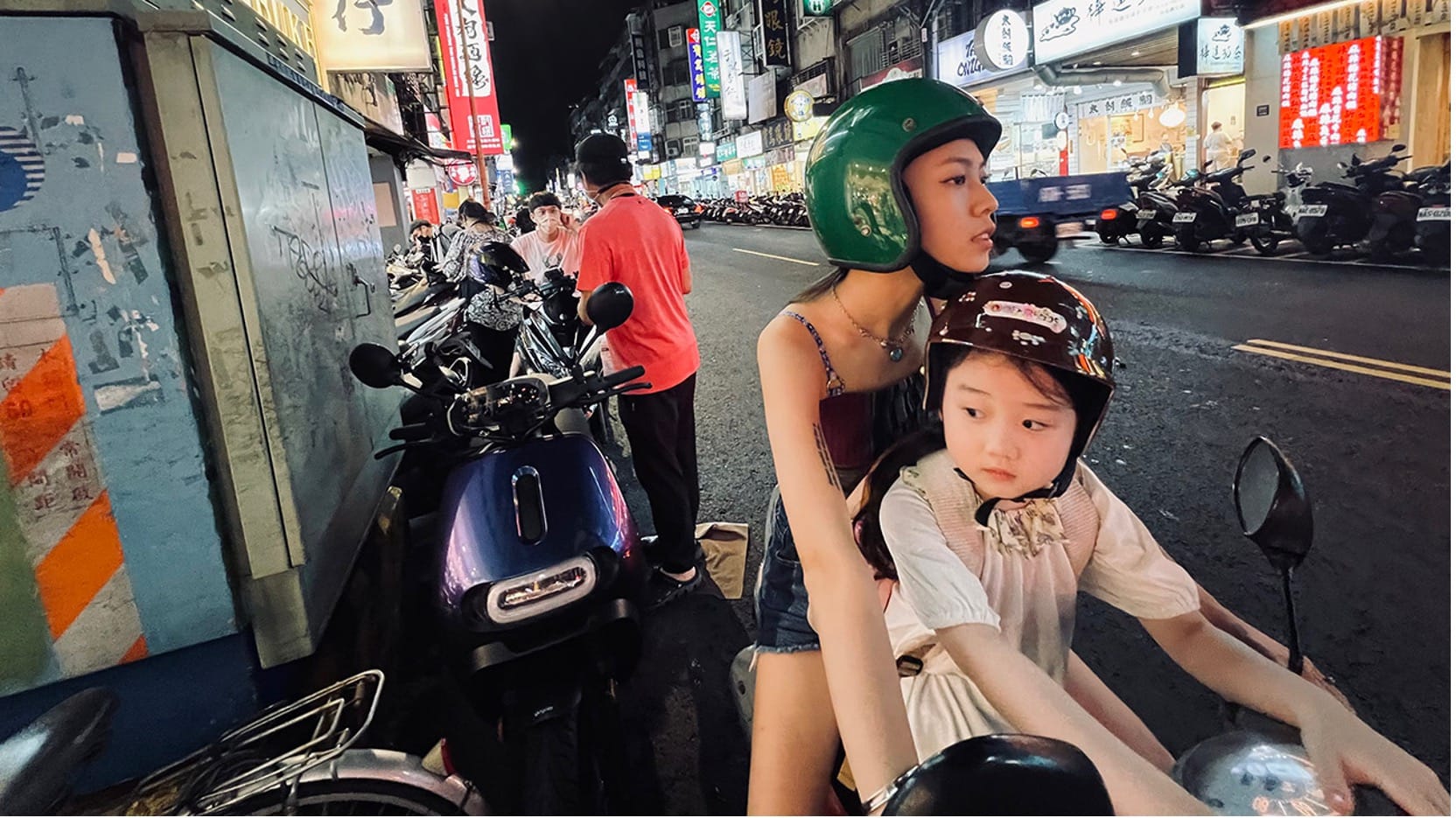★★★½ (3½ out of 4)
As a leftie myself, I strenuously object to the idea that being left-handed is the mark of the devil. But that’s what five-year-old I-Jiang (a totally adorable Nina Ye) hears from her traditional grandfather (Akio Chen). Worse, she believes the old fool. So she’s not too worried when she scoots around the vibrant night markets of Taipei, the teeming capital of Taiwan, shoplifting with mad abandon. It’s not her fault, right? It’s the devil’s hand doing the stealing.
That’s the starting premise for “Left-Handed Girl,” the spellbinding solo directing debut for Shih-Ching Tsou who wrote the script with her film school bestie Sean Baker, a four-time Oscar winner for “Anora,” who also edited. Tsou and Baker have been trying for 25 years to get this film made about three generations of women building a life in Taipei.
Talk about a dream come true for Tsou, a co-producer on Baker’s Florida Project,” “Tangerine,” and “Red Rocket.” She now has a movie that premiered to rave reviews at the Cannes Film Festival and became Taiwan’s submission in the Oscar race for the Best International Feature after being acquired by Netflix, where it will debut on Nov. 28 after a two-week run in theaters where you should definitely try to see it in all its splendiferous full-color glory.
As a leftie myself, I strenuously object to the idea that being left-handed is the mark of the devil.
As you might have guessed, Tsou based I-Jiang on herself as a left-handed child negotiating the world with her devil’s hand. This is her story along with that of her mother Shu-Fen (Janel Tsai), older sister, I-Ann (Shih-Yuan Ma) and grandmother (Xin-Yan Chao) who has suspicions about her daughter and granddaughter that won’t be fully revealed until the final scenes.
I’ll never tell except to say that “Left-Handed Girl” is a character piece that is always breathlessly on the run as Tsou, Baker and camera wiz kids Ko-Chin Chen and Tzu-Hao Kao prowl the streets and night market stalls picking out the details that define character.
Camera perspective plays a central role, often staying low to reflect what I-Jiang sees that adults would have to bend down to notice, and then climbing upward to catch harsher realities as poverty puts the squeeze on the so-called grownups.
I-Ann resents her mother Shu-Fen, who’s behind on paying the rent for her small noodle shop but still supports her irresponsible ex-husband; she even pays for his funeral, believing it’s the right thing to do. Janel Tsai is superb as this woman who is proud to a fault, rejecting help from her stall neighbor Johnny (Brando Huang), thinking he’ll want sexual favors in return.

As older daughter I-Ann, Shih-Yuan Ma brings bruised heart and soul to this teenager who is too young to be carrying the burden of keeping her depressed mother functional. Sleeping with her married boss at a betelnut shop shows a lack of maturity. Yet it is I-Ann and not her mother who disciplines I-Jiang for shoplifting, forcing her to personally return each item she purloined with a sincere apology to go with it.
At a 60th birthday celebration for grandma, sharply played by Xin-Yan Chao, secrets and lies are let out of the bag to the humiliation of all. It’s a big, messy scene that Tsou directs with a keen eye for every revealing detail. But Tsou puts the focus poignantly on I-Jiang, sitting at crowded table surrounded by adults she can’t figure out. You won’t soon forget Ye’s face in closeup, a map of a child in the process of losing her innocence about how the world works.
What is “Left-Handed Girl” saying exactly in the rare moments when it stops zipping through a culture of symbolic night markets that represent the chaos of modern living? Tsou goes for the most eloquent simple answer: that in a universe of nonstop stimuli, connecting on a human level may just be our salvation. It’s a start.

